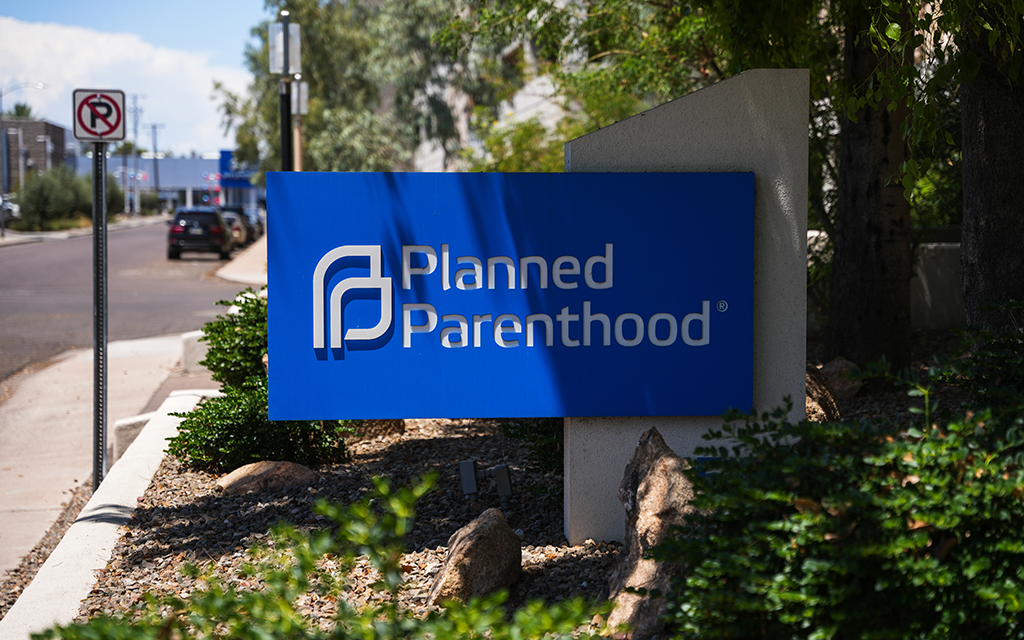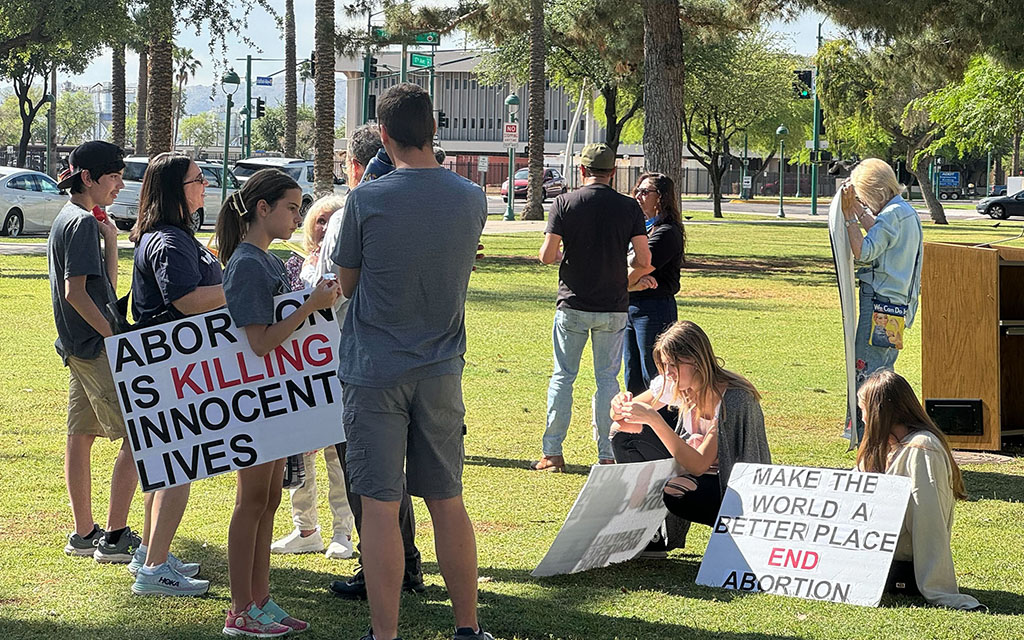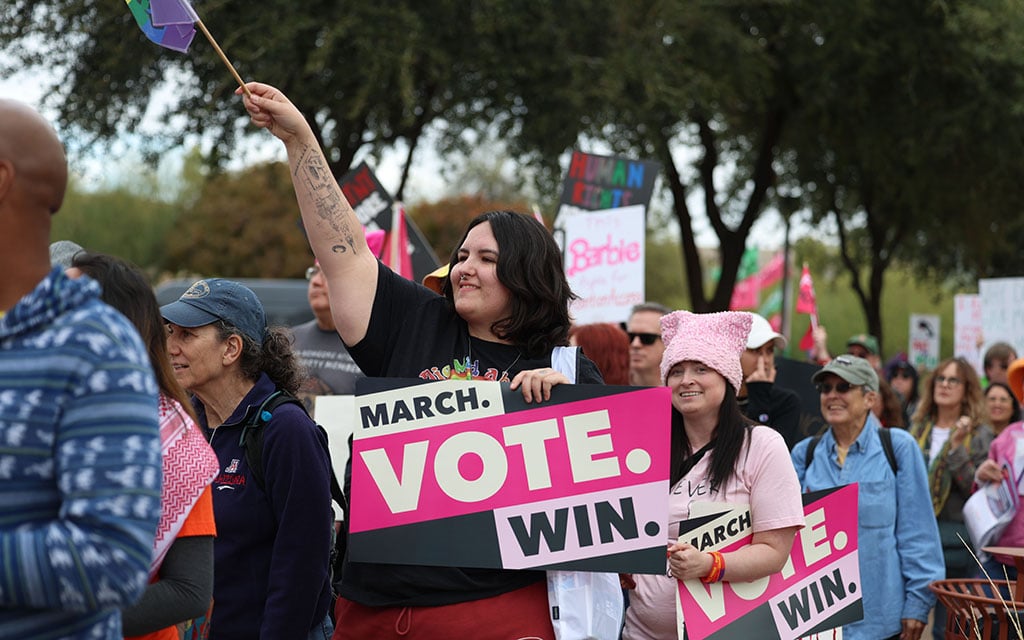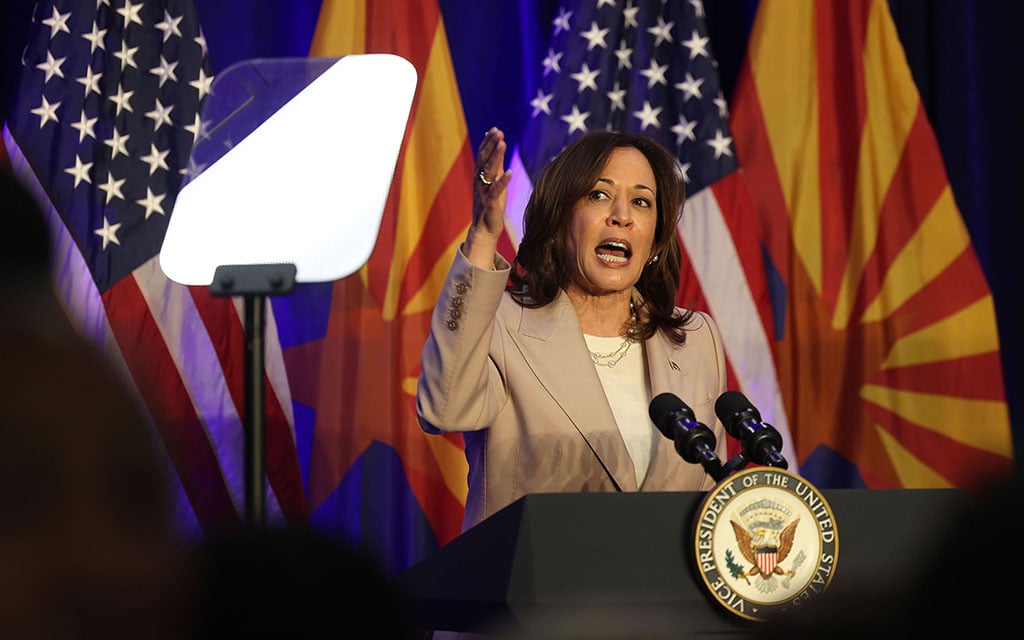
Planned Parenthood said it will continue offering abortions up to 15 weeks of pregnancy for as long as the law allows – but how much longer that will be the case is unclear. State lawmakers are trying to repeal a near-total ban that we recently reinstated, but may not be able to do so in time. (File photo by Troy Hill/Cronkite News)
PHOENIX – As state lawmakers push to repeal a near-total ban on abortion, Planned Parenthood of Arizona confirmed Wednesday that it will continue to provide abortions up to 15 weeks of pregnancy “until the last legal moment.”
But when that last legal moment is depends on who’s talking.
Abortion opponents argue that the ban should have taken effect this week, while Attorney General Kris Mayes said it would not take effect until June at the earliest – and she would not enforce it then. It could take weeks yet for final Senate approval of a repeal, and even then it would be months before the law took effect.
In the meantime, providers and prosecutors are all saying they do not expect abortion services to stop anytime soon.
“Unfortunately, without an emergency clause that would allow the repeal to take effect quickly, we may still be looking at a period of time when the 1864 law could potentially take effect,” Mayes said in a statement Wednesday. “My office continues to look at every legal option available to prevent that from ever happening.”
The 1864 law makes abortion a felony, except to save the life of the mother. It had been on hold since 1973, when the U.S. Supreme Court recognized a right to an abortion in its Roe v. Wade decision. But the Arizona law was never taken off the books.
When the Supreme Court reversed its Roe decision in 2022, it opened the door to resurrection of the territorial-era law, even though the Legislature had passed a new law just weeks before Roe was overturned that allowed abortions up to 15 weeks of pregnancy.
After two years of legal fights, the Arizona Supreme Court ruled on April 9 that the 1864 law was still valid and that it trumped the 2022 15-week threshold. It put its order on hold for two weeks to allow abortion advocates to challenge the ruling.
As far as Jake Warner is concerned, that means the 1864 law should be in effect now.
“As we read the orders and the relevant law, county prosecutors can begin enforcing the law within 14 days of the Arizona Supreme Court’s ruling,” said Warner, senior counsel with Alliance Defending Freedom, which argued for the court to restore the territorial-era law. “Life is a human right, and it always will be.”
But Mayes said in an April 9 letter to health care providers that, under an agreement in a separate abortion case, the state would not enforce the 1864 law for 45 days after the court’s final order. That clock started Tuesday, she said, meaning the law cannot be enforced until June 8.
In the meantime, Democrats in the Legislature have been pushing unsuccessfully to repeal the 1864 law – until Wednesday, when three House Republicans joined all Democrats to approve repeal on a 32-28 vote.

A small group of abortion opponents gathers outside the state Capitol, where the House by a narrow margin Wednesday voted to repeal a near-total ban on abortions in the state. (Photo by Martin Dreyfuss/Cronkite News)
That measure now goes to the Senate, which could take weeks to give it final approval and send it to Gov. Katie Hobbs, who has said she will sign it. But the repeal would not take effect until 90 days after the end of the current legislative session.
“The result of today’s vote is disappointing, but it doesn’t change the fact that every life is valuable from the moment of conception,” Warner said in a prepared statement. “Government officials – especially those who have promised to affirm life – should do everything they can to protect unborn children.”
Abortion opponents may still have some options: While the deadline to introduce bills has passed, the House Rules Committee on Wednesday voted to let GOP leaders introduce late legislation – presumably abortion bills.
All the back and forth comes against the backdrop of a ballot initiative, the Arizona Abortion Access Act, that would enshrine abortion rights in the state constitution. If approved by voters, it would guarantee abortion up to fetal viability, considered to be around 24 weeks of pregnancy, with exceptions for abortions after that.
While the actual law could veer from one extreme to the other between now and November, prosecutors have taken a hands-off approach.
Gov. Katie Hobbs issued an executive order last year that allows Mayes to prohibit county attorneys from bringing charges against abortion providers or patients.
“Attorney General Kris Mayes has been clear she will not prosecute any doctor or woman for an abortion,” Mayes spokesperson Richie Taylor said in an email. “Even without the executive order … she would use her statutory supervisory authority to prevent county attorneys from prosecuting abortion cases.”
Maricopa County Attorney Rachel Mitchell, a Republican, said earlier this month that she would not prosecute women who receive an abortion, but made no mention of abortion providers.
“My priority always has been to protect women, not prosecute them,” Mitchell said in the April 9 statement. “Likewise, I have made it clear that this office will not prosecute abortions that were the result of rape, incest, or molestation.”
Her office confirmed Wednesday that it has not received a single request to file abortion charges, which would be required before a prosecution could proceed.
If all else fails for abortion-rights advocates, they can always go to California. Gov. Gavin Newsom on Wednesday unveiled emergency legislation that would let Arizona doctors perform abortions in his state.
“We have seen a 10% increase in the last year or so of out of state requests for care,” Newsom said. “This Arizona law is the first border state law that will directly affect the state of California.”



